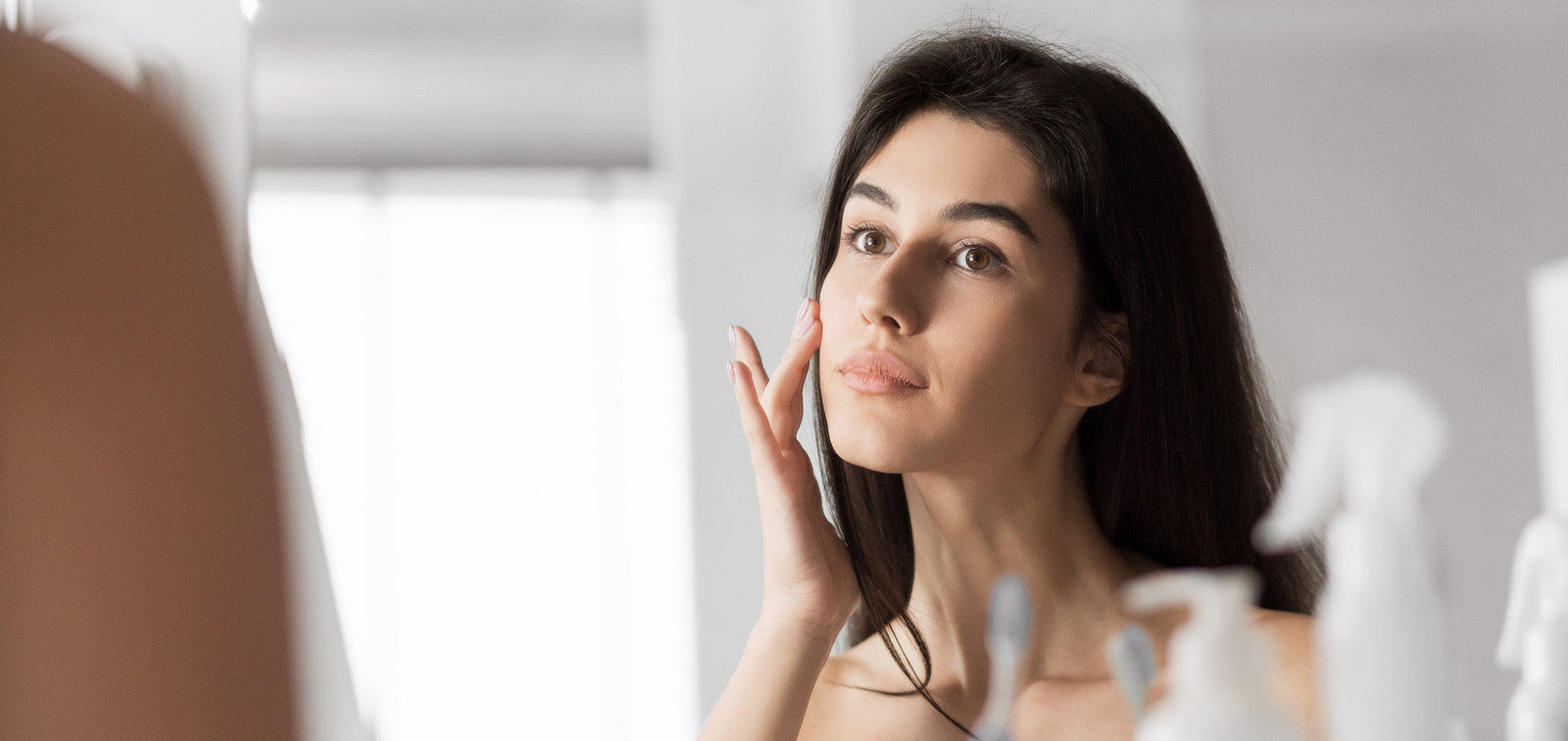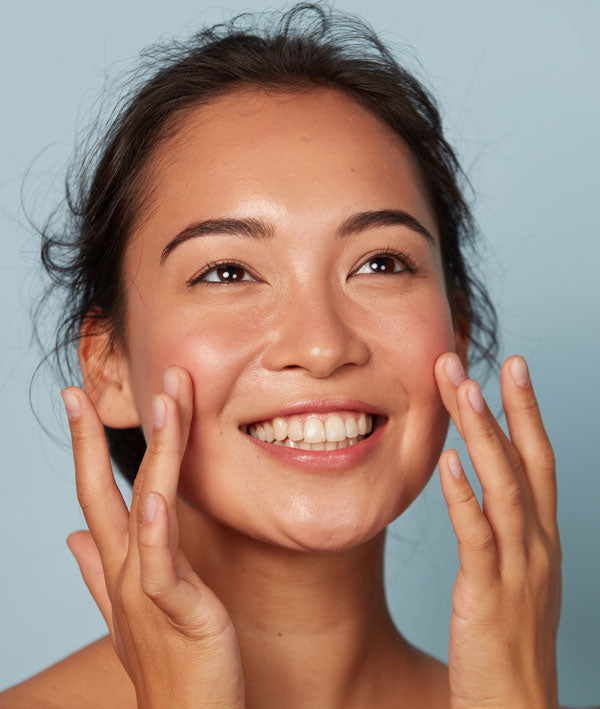Bacterial acne can be a frustrating and persistent skin concern for many people. Understanding its causes and finding the right skincare routine can make all the difference in achieving clear, healthy skin. This article will guide you through everything you need to know about bacterial acne, including the best products and practices to keep breakouts at bay.
What is Bacterial Acne?
Bacterial acne, often referred to as acne vulgaris, is a common skin condition caused by the overgrowth ofCutibacterium acnes (formerly known asPropionibacterium acnes). These bacteria are naturally present on the skin but can multiply excessively in clogged pores, leading to inflammation, redness, and breakouts.
Bacterial acne typically manifests as whiteheads, blackheads, papules, pustules, or even cystic lesions. It commonly affects the face, chest, and back and can be triggered or worsened by environmental factors, lifestyle choices, and improper skincare.
Bacterial vs. Hormonal Acne
While bacterial and hormonal acne may look similar, they have distinct underlying causes. Hormonal acne is often linked to fluctuations in hormones, such as during puberty, menstruation, pregnancy, or stress. It tends to appear around the jawline, chin, and lower cheeks.
Bacterial acne, on the other hand, is primarily caused by the proliferation ofC. acnes bacteria. Unlike hormonal acne, which can occur deep within the skin, bacterial acne is usually closer to the surface and responds well to antibacterial treatments.
Understanding the difference is crucial in choosing the right skincare routine and treatment approach. If you’re unsure about the type of acne you have, consult a dermatologist for a proper diagnosis.
Common Causes of Bacterial Acne
Several factors contribute to the development of bacterial acne. Here are the most common culprits:
-
Clogged Pores: Excess oil production, dead skin cells, and makeup residue can block pores, creating an ideal environment for bacterial growth.
-
Poor Hygiene: Touching your face frequently, using dirty makeup brushes, or not washing your pillowcases regularly can introduce bacteria to your skin.
-
Oily Skin: Individuals with oily skin are more prone to bacterial acne as excess sebum can trap bacteria in the pores.
-
Stress: Chronic stress can weaken the skin’s barrier, making it easier for bacteria to thrive.
-
Diet: Consuming high-glycemic foods and dairy products may exacerbate acne by increasing inflammation and sebum production.
-
Incorrect Skincare Products: Using comedogenic or harsh products can disrupt the skin’s balance, leading to more breakouts.
Products You Should Use
When battling bacterial acne, the right products can make a significant impact. Look for these key ingredients:
-
Salicylic Acid: A beta-hydroxy acid (BHA) that exfoliates and clears clogged pores.
-
Benzoyl Peroxide: An antibacterial agent that kills acne-causing bacteria.
-
Hyaluronic Acid: Essential for hydration without clogging pores. It helps balance moisture levels, which can prevent overproduction of oil.
-
Vitamin C Serum: Packed with antioxidants, vitamin C helps reduce inflammation and promote healing of acne scars.
-
Niacinamide: A form of vitamin B3 that reduces redness and regulates oil production.
Products to Avoid
Certain products can aggravate bacterial acne. Here’s what to steer clear of:
-
Heavy Oils: Ingredients like coconut oil and mineral oil can clog pores and worsen acne.
-
Harsh Scrubs: Physical exfoliants with large, abrasive particles can irritate the skin and spread bacteria.
-
Alcohol-Based Toners: These can dry out your skin, triggering more oil production and exacerbating breakouts.
-
Fragranced Products: Synthetic fragrances can irritate sensitive skin and cause inflammation.
-
Comedogenic Makeup: Foundations, concealers, and powders that clog pores should be avoided. Opt for non-comedogenic and acne-safe makeup instead.
Best Skincare Routine for Bacterial Acne
Consistency is key when it comes to managing bacterial acne. Here’s a step-by-step skincare routine to help keep your skin clear:
Morning Routine
-
Gentle Cleanser: Use a mild, sulfate-free cleanser to remove excess oil and bacteria without stripping the skin. Look for ingredients like salicylic acid to target clogged pores.
-
Toner (Optional): Apply a hydrating toner with niacinamide to soothe inflammation and prepare the skin for treatment products.
-
Vitamin C Serum: Apply a few drops of vitamin C serum to help brighten your complexion, reduce redness, and promote healing. Ensure the serum is non-comedogenic.
-
Hyaluronic Acid Serum: Layer a hyaluronic acid serum for lightweight hydration. This helps maintain moisture balance without contributing to oiliness.
-
Oil-Free Moisturizer: Choose a non-comedogenic moisturizer to lock in hydration and keep your skin barrier healthy.
- Sunscreen: Always finish with a broad-spectrum sunscreen with at least SPF 30 to protect your skin from UV damage, which can worsen acne scars.
Evening Routine
-
Double Cleanse: Start with an oil-based cleanser to remove makeup and sunscreen, followed by a water-based cleanser to thoroughly cleanse the skin.
-
Exfoliating Treatment: Use a product with salicylic acid or benzoyl peroxide a few times a week to target bacteria and prevent clogged pores. Be cautious not to overuse these treatments, as they can dry out your skin.
-
Hyaluronic Acid Serum: Reapply a hyaluronic acid serum to keep your skin hydrated.
-
Moisturizer: Opt for a lightweight, non-comedogenic moisturizer to repair and nourish the skin overnight.
-
Spot Treatment: Apply a benzoyl peroxide or sulfur-based spot treatment directly to active blemishes to reduce their size and redness.
Weekly Extras
-
Clay Masks: Use a clay mask once a week to absorb excess oil and detoxify your pores.
-
Hydrating Masks: Incorporate a hydrating or soothing mask to balance your skin after treatments.
Managing bacterial acne requires a combination of the right products, consistent skincare practices, and lifestyle adjustments. By incorporating antibacterial ingredients like salicylic acid, benzoyl peroxide, and niacinamide into your routine and avoiding pore-clogging products, you can effectively reduce breakouts and maintain clear skin.
If your acne persists despite following a proper skincare regimen, consider consulting a dermatologist for personalized treatment options. With patience and the right approach, clear, healthy skin is within reach.







